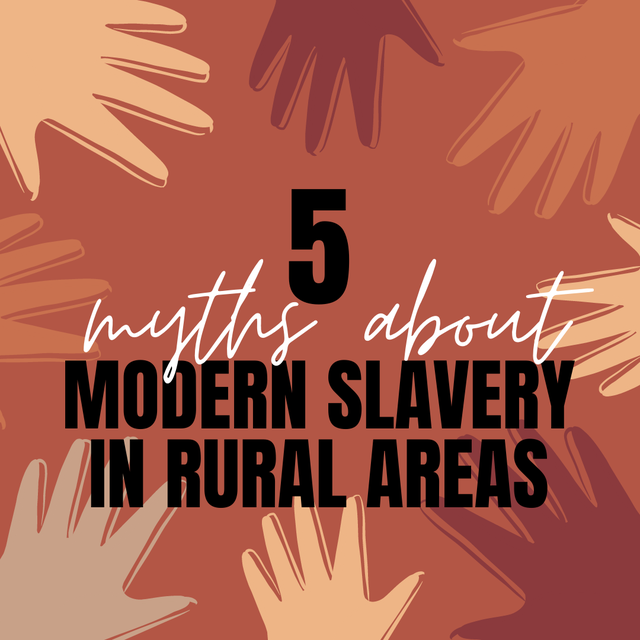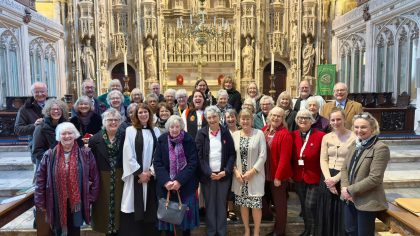| Five myths about modern slavery in rural areas |
| Myth 1: Modern slavery is an urban thing. Wrong! Modern slavery is present in all communities. In cities, when streets are full of people and activity, it can be hidden amongst the hustle and bustle. In rural areas, it is often hidden in remote locations, off the beaten track. Myth 2: The only form of modern slavery in rural areas is forced labour Wrong! Every form of modern slavery is possible in rural areas. Forced labour is common but so is sexual exploitation, domestic servitude, and county lines. In fact, over the last few years, there has been a growing trend for criminal gangs to rent remote holiday cottages and turn them into “pop up brothels”, keeping women against their will and selling their services online. Myth 3: Forced labour is only present on farms and in factories Wrong! Labour exploitation is the second most common form of modern slavery in the UK and can occur in every sector and industry. It is particularly prevalent in the agriculture, horticulture, food processing and packaging, shellfish gathering, warehousing and logistics, beauty, hotels, catering, cleaning, construction, manufacturing, and car wash sectors. Myth 4: If slaves are found in a business, it is the fault of the employer Wrong! It can be extremely hard to spot signs of modern slavery and criminal exploiters go to great lengths to hide the evidence. They are extremely savvy and sometimes provide forged documents to get past reputable employers who are doing the appropriate checks. What’s more, workers who are employed in lawful employment can still be subjected to exploitation outside of their working environment, in their home lives. That is why it is so important that employers know the signs to look out for. Myth 5: There is nothing that can be done to prevent modern slavery in rural areas Wrong! We all have a part to play in knowing what to look out for. Spotting signs of modern slavery and reporting suspicions to the Police could result in victims being rescued and criminal networks thwarted. Also, if employers know how to follow best practice recruitment policies and find licensed labour providers, they will be able to avoid traffickers and illegal labour providers. If you are interested in the impact of Covid and Brexit on horticultural businesses, click the link below to listen to James Barnes, the chair of the Horticultural Trades Association. Covid and Brexit have caused havoc for horticultural businesses — The Clewer Initiative The Rev’d Edwina Fennemore – Liaison Lead Against Modern Slavery, Diocese of Portsmouth & Winchester |





